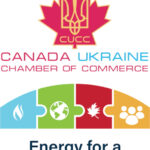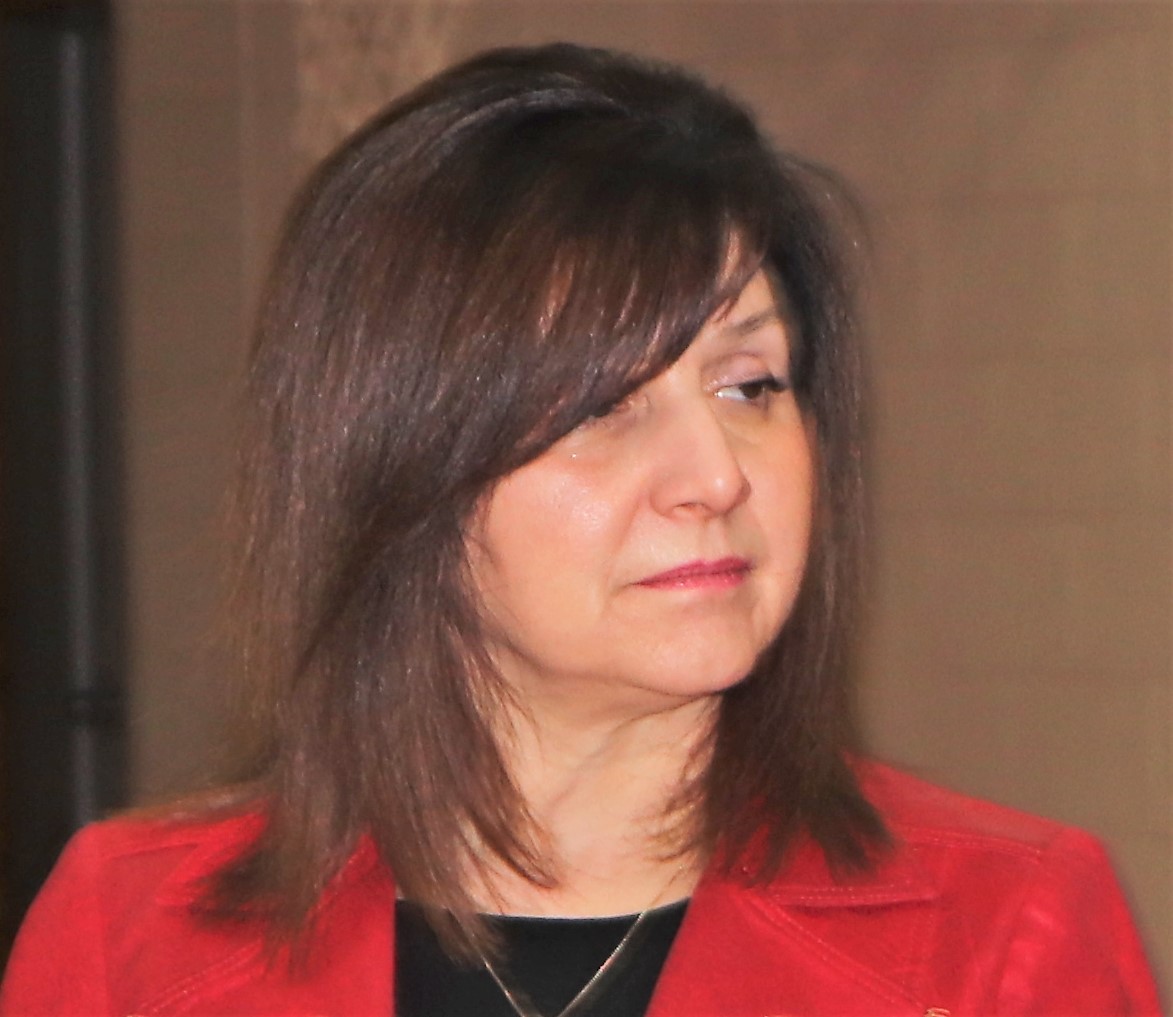The President of the Ukrainian Canadian Congress (UCC) Paul Grod is a well-known figure not just in the Ukrainian community, but in Canada as a whole. He became President of the UCC eight years ago. Over these years, Paul Grod and the UCC have won wide recognition – the Power and Influence magazine ranked Mr. Grod #21 in the spring 2014 rating of the top 100 people influencing Canada’s global future, while the Congress ranked first in the category of Diaspora & Civil Society organizations.
Many people also know that Paul Grod is among the founders of the energy services company Rodan Energy Solutions (Rodan Energy). But much fewer people know what Rodan Energy actually is. The New Pathway visited Rodan Energy’s site at 165 Matheson Blvd East in Mississauga and asked Paul Grod to explain to us in laymen terms what the company does. What we found was quite fascinating.
First off, Rodan Energy is a smart grid integrator. For those, who are not sure what that means, Rodan Energy works with large energy users and big power producers, and helps them connect with the power grid. When anyone connects to the high voltage lines (of the like you see when driving down 407), they require the services of this company to provide the metering and high voltage operational communications with the connection point. Essentially, Rodan is responsible for the cash register that connects to that high voltage grid. When power producers, like Northland Power, Bruce Power or Ontario Power Generation, who are all clients of Rodan, connect to the grid, they need to know how much power they are putting onto the grid so that they are properly paid. Among Rodan’s clients are also very large energy users, such as big mining, steel, cement and manufacturing companies.
The second part of the Rodan Energy’s business is being a demand response provider. The company helps large energy users manage when they use their power because they can achieve significant savings and even earn money by using power in different periods of time. When the Independent Electricity System Operator, which is responsible for operating the power system, has a large need for power, they can either call a generator to produce more power or call Rodan Energy to take power off the grid. Rodan then calls big energy users, which include companies like Magna, Loblaw’s, City of Toronto, who, based on Rodan’s energy control signal, reduce their energy consumption for up to four hours. Rodan Energy is the largest demand response provider in Canada and provides this service throughout the country, including Alberta and British Columbia.
Another part of Rodan Energy’s business is that it manages the Ontario’s Peaksaver™ program. In Ontario, there are 350,000 homes and small businesses (up to 10% of all small users) that have smart devices installed – whether it is a smart thermostat or load control switch on their air conditioner – and Rodan controls all those throughout Ontario. The company manages that through its Network Operations Center.
Rodan has recently acquired an energy analytics company Energent out of Kitchener-Waterloo. That acquisition allows Rodan to provide more in-depth energy analytics and optimisation services which can reduce the clients’ total energy spend. They can also monitor and target Greenhouse Gass emissions for energy users and producers. Rodan considers reduction of its customers’ total energy spend as one of its main missions.
For example, Rodan can turn down air conditioners in people’s homes across Ontario (for those who voluntarily participate in the program) when the electricity system is strained. Two years ago, during big power outages in Toronto, Rodan was able to reduce over 100 Megawatts of demand by a combination of turning air conditioners down in homes and reducing the use by large energy users.
Paul Grod sees big growth ahead for the smart home and smart businesses market. It could be sophisticated control devises or smart appliances, or even managing electric vehicles. If you have an electric vehicle plugged in at home, Rodan Energy could balance the grid by charging the car less intensely or using the car’s battery to put power onto the grid whenever the grid needs it. This is where the future of energy storage, demand side management and distributed energy resources is going and that is what the smart grid is about. Paul Grod compares the arrival of the smart grid to energy users to that of the arrival of the Internet. In the past, electricity was supplied by the big power stations and everybody just consumed whatever they needed. Today, people produce their own power with solar roof tops and can store energy through electric vehicles and batteries, and control how much power they use and when they use it.
Right now, new battery technologies, like the ones from Tesla and BMW, are in their infancy. The challenge so far is the cost of technology. The average cost of power produced in Ontario now is around 4cents/kWh. For the rooftop solar panel to pay for itself, it has to be paid 20-25cents/kWh with the payback period of about 12 years. Significant subsidies, which are so far needed for green technologies, are still the challenge. If a residential customer installs a solar panel on their roof, the Ontario government a few years ago paid them as much as 80cents/kWh, whereas today the price is closer to 30cents/kWh.
In this respect, we asked Paul Grod about his opinion if the global warming concept justifies this kind of measures to reduce the CO2 production. Mr. Grod said that climate change is real and presents a real risk. He praised the decision of the government of Ontario to shut down all the coal power plants and replace them with clean power as “very brave”. This has made Ontario much cleaner. This has also increased the power costs in Ontario, but those power costs are still not as high as in many parts of Europe and even in some parts of the US. Rodan Energy is participating in making the energy costs more compatible for Ontario manufacturers by reducing their total energy spend.
The cost of renewable technologies has come down dramatically because of the investment by the governments like Ontario, said Paul Grod. What was 80cents/kWh several years ago, is now 30cents/kWh. And this cost should go down further to parity with other technologies’ costs due to the technological revolution in the energy sector. Rodan Energy is a market leader in this area in Canada and is involved in a number of stakeholder groups working with the Ministry of Energy on the implementation of all these changes. We asked Paul Grod if he, with all his immense experience in the energy sector, has been asked to help reform the electricity sector in Ukraine. He said that he has been offered to participate in this reform, which however required a full-time commitment. He has offered to provide his volunteer advisory time on a part-time basis instead.
Rodan Energy was founded in 2002, by Paul Grod and Borys Chartchenko, with the name Rodan coming from a combination of Paul’s two sons’ names: Roman and Danylo. The partners came from very different backgrounds. Paul was practicing law for a big national law firm, and Borys was a charted accountant. The idea to create Rodan came about when the Ontario Hydro was being split up and the whole electricity system was reformed. The two entrepreneurs bought a small metering services company with about five people. The company now employs about 70 people and is doing business across Canada. In Canada, Rodan is the largest provider of this kind of services with the market share exceeding 50%. The company is planning to expand into other jurisdictions, including the US.
Paul Grod explains that his MBA degree and prior experience as an investment banker with CIBC specialising in high tech helped him get a good grasp of the energy business. But it still took “hundreds of hours” to learn about engineering, power systems and energy management in order to be able to lead this company.
Rodan Energy is a very good employer. It holds different events for its staff every month, whether it is educational seminars, free massages, archery classes and holiday parties. The company has implemented an Eat Healthy Initiative – fresh fruit, as well as drinks, is freely available in the office. As a result, the company hit the ranks of the top 100 small and medium employers in Canada in 2015 by Mediacorp Canada.
The New Pathway believes the Rodan Energy's case proves that there is an immeasurable wealth of knowledge and experience in the Ukrainian Canadian community. It has been said time and time again, that the Ukrainian Canadians have contributed immensely in the prosperity of this great country. We consider it our mission to inform the community better about its people, businesses and organizations – it will help us all develop on the foundation laid by the many generations of Ukrainian Canadians.
Share on Social Media




































